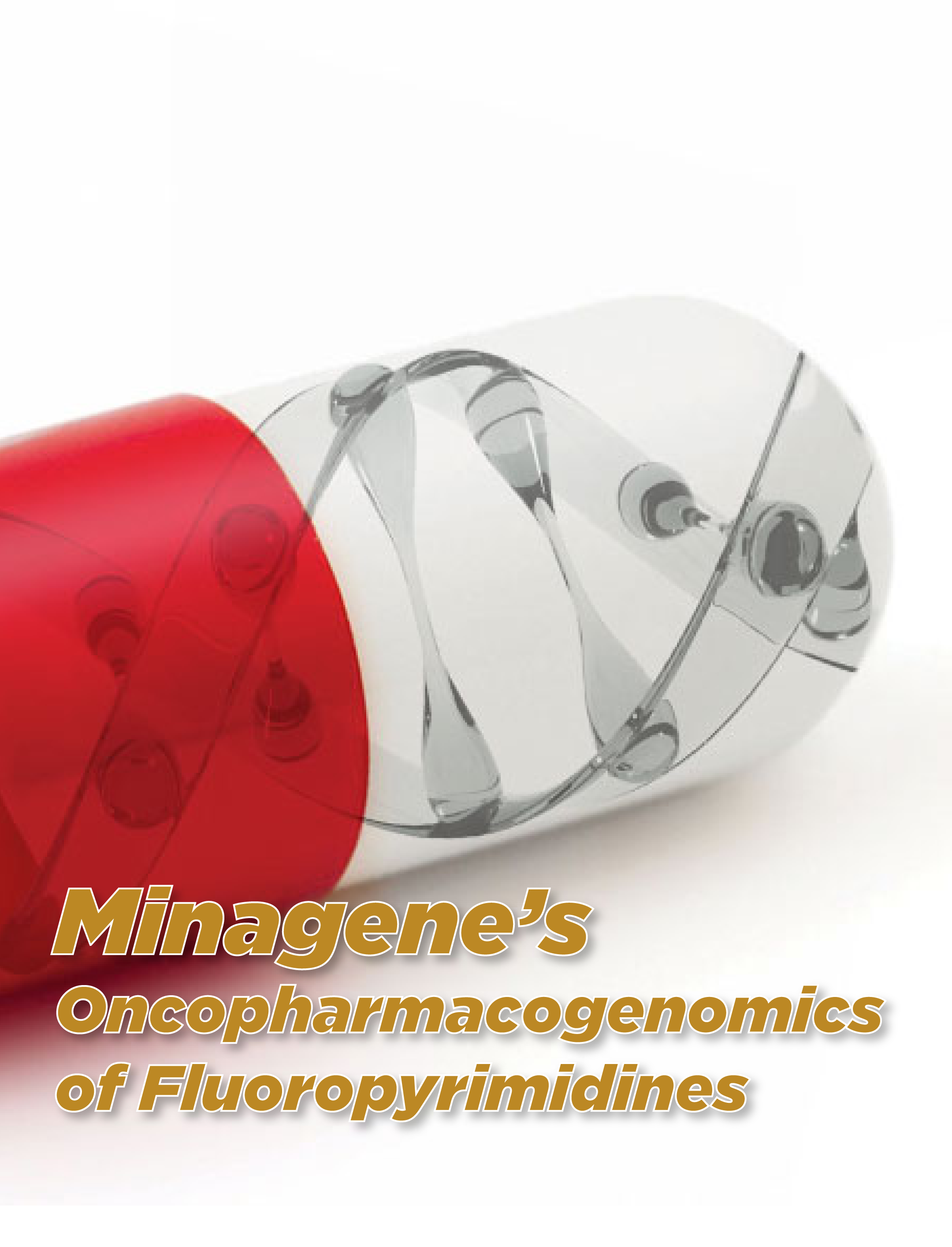
Overview
Minagene’s Oncopharmacogenomics of Thiopurines is a specialized genetic test designed to optimize the safety and efficacy of thiopurine-based cancer treatments. By analyzing specific genetic variants involved in drug metabolism and response, this test provides valuable insights that enable personalized treatment strategies, minimizing toxicity and maximizing therapeutic benefits for patients.
Methodology
The Oncopharmacogenomics of Thiopurines test utilizes advanced genetic analysis techniques, including high-throughput sequencing and genotyping, to analyze specific genetic variants associated with thiopurine metabolism and drug response. It focuses on genes involved in drug activation, metabolism, and target interactions, providing a comprehensive assessment of an individual’s pharmacogenomic profile.
Key Highlights of the Test:
-Personalized Treatment Optimization: The Oncopharmacogenomics of Thiopurines test enables personalized treatment optimization by identifying genetic variants that influence drug metabolism and response to thiopurines. This information helps clinicians tailor treatment regimens, adjust dosages, and enhance treatment efficacy while minimizing the risk of adverse effects.
-Identification of Variants in Drug-Metabolizing Enzymes: The test identifies genetic variants in key drug-metabolizing enzymes, such as thiopurine S-methyltransferase (TPMT) and nucleoside diphosphate-linked moiety X-type motif 15 (NUDT15). Variants in these enzymes can affect thiopurine metabolism, leading to altered drug efficacy and increased risk of toxicity. By detecting these variants, the test helps identify patients at higher risk of adverse effects and guides treatment decisions accordingly.
-Prediction of Drug Response and Efficacy: Genetic variants in drug target genes, such as thiopurine methyltransferase (TPMT) and inosine triphosphatase (ITPA), can influence drug response and efficacy. The test evaluates these variants, providing valuable information on treatment response likelihood and guiding clinicians in selecting the most appropriate therapeutic approach.
-Risk Stratification for Toxicity: By identifying genetic variants associated with increased drug toxicity, the test enables risk stratification for thiopurine-related adverse effects. This information assists healthcare professionals in making informed decisions regarding treatment selection, dosing adjustments, and proactive monitoring of patients at higher risk of toxicity.
-Clinical Decision Support: The Oncopharmacogenomics of Thiopurines test serves as a valuable tool for clinical decision-making. It provides actionable information that helps healthcare professionals optimize treatment plans, choose the most suitable thiopurine-based therapies, and minimize the risk of adverse drug reactions during cancer treatment.
-Treatment Planning: The Oncopharmacogenomics of Thiopurines test is particularly valuable during treatment planning for cancer patients who are candidates for thiopurine-based therapies. It helps identify genetic variants that may affect drug metabolism and response, enabling personalized treatment strategies to optimize therapeutic outcomes.
-Risk Assessment for Toxicity: The test is beneficial for assessing an individual’s risk of developing severe side effects associated with thiopurine-based treatments. By identifying genetic variants in drug-metabolizing enzymes, such as TPMT and NUDT15, clinicians can proactively stratify patients and implement appropriate measures to minimize toxicity.
-Treatment Response Prediction: The test aids in predicting treatment response and efficacy by evaluating genetic variants in drug target genes, such as TPMT and ITPA. This information helps guide treatment decisions and optimize therapeutic benefits for patients undergoing thiopurine-based cancer treatments.
-Dosing Optimization: Genetic information obtained from the test assists in optimizing drug dosing strategies for thiopurine-based therapies. By considering an individual’s pharmacogenomic profile, clinicians can adjust dosages to achieve the desired treatment effect while minimizing the risk of adverse drug reactions.
-Enhanced Safety Monitoring: The test supports enhanced safety monitoring for patients receiving thiopurine-based treatments. By identifying individuals with genetic variants associated with increased drug toxicity, clinicians can implement proactive monitoring and take appropriate measures to ensure patient safety.
